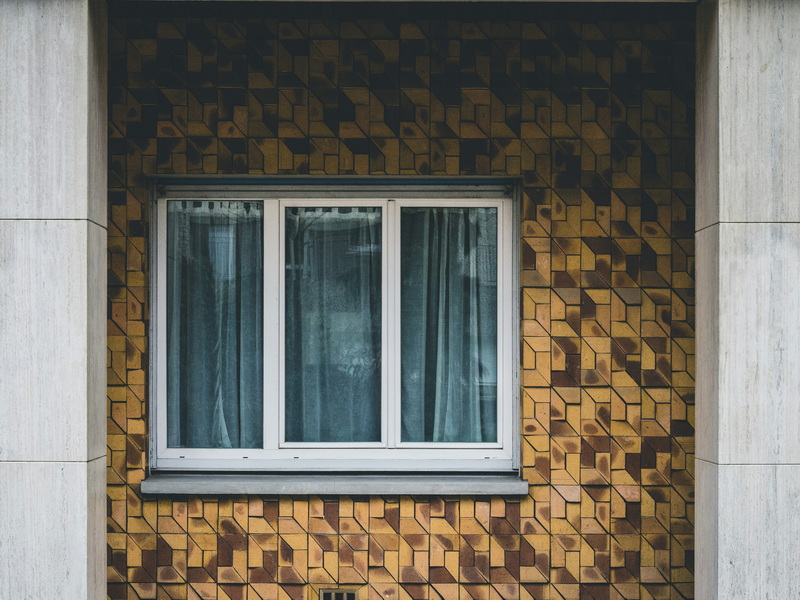English 




Views: 222 Author: Astin Publish Time: 2025-02-03 Origin: Site



Content Menu
● Step-by-Step Installation Process
>> 1. Prepare Your Workstation
>> 3. Measure and Cut the New Screen
>> 5. Install the Screen and Spline
>> 7. Reinstall the Screen Frame
● Benefits of Aluminum Window Screens
● Common Mistakes to Avoid When Installing Screens
● Maintenance Tips for Aluminum Window Screens
>> 1. Can I Use Aluminum Screen on Any Window Frame?
>> 2. How Do I Choose the Right Spline Size?
>> 3. Can I Use Fiberglass Instead of Aluminum for Window Screens?
>> 4. What If My Screen Develops Wrinkles After Installation?
>> 5. How Often Should I Replace My Window Screens?
Installing an aluminum window screen is a practical DIY project that can significantly improve your home's comfort and energy efficiency. This comprehensive guide will walk you through the process step-by-step, ensuring you have all the information needed to successfully install or replace your aluminum window screens.

Before beginning the installation process, gather the following essential tools and materials:
- Aluminum window screen mesh
- Spline (rubber cord)
- Spline roller (with convex and concave ends)
- Utility knife or Rollerknife
- Flathead screwdriver
- Scissors
- Measuring tape
- Safety goggles
Optional tools that may be helpful include:
- Duct tape (to secure the frame)
- Paper towels (to clean the spline channel)
- Hacksaw (if trimming the frame is necessary)
Begin by choosing a clean, flat surface to work on. Lay down a protective covering if necessary to avoid scratches on your work surface. Ensure that you have all tools and materials within reach to facilitate a smooth installation process[4].
If you're replacing an existing screen:
- Use the flathead screwdriver to pry up the old spline from the frame.
- Carefully lift out the old screen material.
- Clean the spline channel with a paper towel to remove any debris or remnants of the old spline[4].
- Unroll the aluminum screen over the frame, leaving at least 1 inch of excess material on all sides.
- Use a utility knife to cut the screen material to size, ensuring it remains slightly oversized for easier adjustment[1][4].
- Lay the new screen over the frame, ensuring it is centered and taut.
- If necessary, use duct tape to temporarily secure the screen in place while you work[4].
- Crease the Screen: Use the convex end of the spline roller to press the screen into the channel, starting at one corner. This creates a guide for the spline[1].
- Insert the Spline: Place the spline into the channel and use the concave end of the roller to press it firmly into place. Work sequentially around the frame, maintaining tension to prevent wrinkles[1][4].
Hold a utility knife at a 45-degree angle against the outer edge of the spline groove and carefully cut away the excess screen. Avoid cutting the spline itself to ensure a secure hold[1][4].
Place the screen back into the window or door, ensuring it sits snugly in the tracks. For sliding windows, align the pull tabs or spring clips with the frame grooves[1].
- Maintain Tension: Stretch the screen tightly while installing the spline to avoid sagging or wrinkles[13].
- Work Slowly: Rushing can lead to misaligned spline or uneven cuts. Take your time to understand each step, and don't rush the process[3].
- Reuse Old Spline: If the existing spline is intact, clean and reuse it to save time.
- Corner Care: Spend extra time ensuring the spline is well-seated in the corners to prevent it from coming out[6].

Aluminum window screens offer several advantages over other materials:
1. Durability: Aluminum screens are more rigid and resistant to damage than fiberglass alternatives.
2. Longevity: With proper care, aluminum screens can last 5-10 years or more.
3. Visibility: The thin profile of aluminum wire allows for better visibility compared to thicker materials.
4. Pest Control: The fine mesh effectively keeps out insects while allowing for ventilation.
5. Low Maintenance: Aluminum screens are easy to clean and maintain.
1. Ignoring Manufacturer's Instructions: Always follow the specific guidelines provided with your screen material[3].
2. Poor Planning and Rushed Installation: Take time to understand each step and gather all necessary materials before starting[3].
3. Inadequate Sealing: Ensure proper sealing around the frame to prevent drafts and insect intrusion[3].
4. Incorrect Spline Size: Using the wrong size spline can lead to a loose screen. Always measure the channel and choose the appropriate spline size[6].
5. Not Keeping the Screen Taut: Ensure the screen is tight while installing the spline to avoid bubbles and wrinkles[6].
To extend the life of your newly installed aluminum window screens:
1. Regular Cleaning: Gently vacuum or brush the screen to remove dust and debris.
2. Inspect Regularly: Check for tears, holes, or loose spline periodically.
3. Avoid Pressure: When cleaning, avoid applying excessive pressure that could deform the screen.
4. Address Issues Promptly: Repair small tears or replace damaged sections as soon as they're noticed to prevent further damage.
5. Seasonal Care: Remove and store screens during harsh winter months in areas with severe weather.
Installing an aluminum window screen is a straightforward project that requires minimal tools and yields immediate benefits. By following these steps—preparing the frame, securing the spline, and trimming excess material—you can achieve a professional finish without hiring a technician. Regular maintenance, such as cleaning debris and checking for damage, will extend the screen's lifespan and keep your home comfortable year-round.
Remember that patience and attention to detail are key to a successful installation. Take your time with each step, especially when stretching the screen and securing the spline. With practice, you'll find that replacing or installing aluminum window screens becomes an easy and rewarding DIY task that enhances your home's functionality and appearance.

Yes, aluminum screens work with aluminum, wood, and vinyl frames. Ensure the spline groove is clean and undamaged before installation[1].
Match the spline diameter to the channel depth—common sizes are 0.125" and 0.160". Test-fit a small section before committing[6].
While fiberglass is an option, aluminum offers better durability and longevity. Fiberglass may be easier to work with but is less resistant to damage[4].
Loosen the spline on the affected side, re-stretch the screen, and press the spline back into place. Ensure proper tension is maintained during installation to prevent this issue[9].
Aluminum screens typically last 5-10 years with proper care. Replace them if you notice tears, rust, or difficulty cleaning. Regular inspections can help determine when replacement is necessary[1].
[1] https://www.youtube.com/watch?v=t8vEnet3V14
[2] https://www.walcoom.com/pdf/window-screen.pdf
[3] https://aluminiumrevival.com.au/diy-vs-professional-services-and-industry-insights/common-mistakes-diy-aluminium-window/
[4] https://www.gm-cx.com/how-to-install-aluminum-window-screen.html
[5] https://joneakes.com/jons-fixit-database/1687-Replacing%20%20screens%20in%20doors%20and%20windows%20&%20New%20Types%20of%20Screens
[6] https://windowhardwaredirect.com/blogs/news/top-tips-for-window-screen-replacement-parts
[7] https://www.customscreens.com.au/installing-security-screens-to-aluminium-windows/
[8] https://www.dapaproducts.com/tips-working-screen-spline/
[9] https://windowhardwaredirect.com/blogs/news/step-by-step-guide-how-to-install-window-screen-without-frame-for-a-seamless-look
[10] https://aimwin.eu/7-most-common-window-installation-mistakes/
[11] https://windowworld-btr.com/blog/how-to-repair-or-replace-your-homes-window-screens/
[12] https://www.screentight.com/how-to-install-window-screens/
[13] https://windowhardwaredirect.com/blogs/news/a-complete-guide-on-how-to-install-window-screen-without-frame-for-your-home
[14] https://blindandscreen.com/rescreening-a-window-screen-a-step-by-step-guide-with-extra-details/
[15] https://windowhardwaredirect.com/en-de/blogs/news/a-complete-guide-on-how-to-put-screen-in-window-tips-and-tricks-for-easy-installation
[16] https://todaydoor.com/installation-guide-and-selection-tips-for-aluminium-windows/
[17] https://www.youtube.com/watch?v=wqmU2KgdlCM
[18] https://www.phifer.com/screening/diy/installation/
[19] https://texta.ai/articles/how-to-avoid-common-mistakes-when-installing-aluminium-windows-and-doors
[20] https://www.youtube.com/watch?v=8asgjqD3XuI
Top Aluminum Furnitures Manufacturers and Suppliers in Czech Republic
Top Aluminum Furnitures Manufacturers and Suppliers in Poland
Top Aluminum Furnitures Manufacturers and Suppliers in Belgium
Top Aluminum Furnitures Manufacturers and Suppliers in Finland
Top Aluminum Furnitures Manufacturers and Suppliers in Denmark
Top Aluminum Furnitures Manufacturers and Suppliers in Greece
Top Aluminum Furnitures Manufacturers and Suppliers in Portugal
Top Aluminum Furnitures Manufacturers and Suppliers in Austria
Top Aluminum Furnitures Manufacturers and Suppliers in Norway
Top Aluminum Furnitures Manufacturers and Suppliers in Sweden
